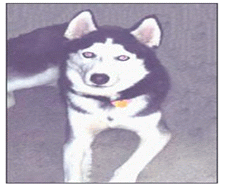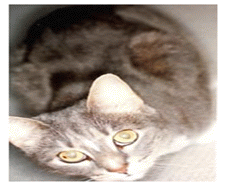피부 애벌레 이행증/피부유충 이행증 Cutaneous larva migrans
원인과 증상 징후

사진 5-14. 개나 고양이의 십이지장충(구충)의 새끼벌레 감염에 의해서 피부유충 이행증이 생길 수 있다.
Copyright ⓒ 2012 John Sangwon Lee, MD., FAAP

사진 5-15. 개나 고양이의 십이지장충(구충)의 새끼벌레 감염에 의해서 피부 유충 이행증이 생길 수 있다.
Copyright ⓒ 2012 John Sangwon Lee, MD., FAAP
-
개의 구충(Ancylostoma canium)이나 고양이의 구충(Ancylostoma braziliense)의 새끼벌레(유충)가 사람의 피부층에 감염될 때 생기는 기생충증을 피부 애벌레 이행증, 피부 유충 이행증, 유충 피부 내 이행증, 피부 구선증 또는 포도병이라 한다.
-
Ancylostoma duodenale이나 Necator americanus 등의 구충의 새끼벌레 감염이 피부층에 생길 때도 유충 피부 내 이행증이 생길 수 있다. 십이지장충증 참조.
-
개나 고양이의 창자 속에서 기생하는 구충 난이 대변을 통해 흙 속에 떨어지는 것이 보통이다. 그 구충의 알에서 깐 새끼벌레는 흙이나 모래 속에서 산다.
-
구충의 새끼벌레가 오염된 흙에서 맨발로 걷거나 옷을 입지 않고 앉거나 누워서 놀 때 구충의 새끼벌레가 피부에 감염될 수 있다.
-
이 새끼벌레가 피부의 각질층을 뚫고 피부층 속에서 기생하면서 그 주위의 다른 피부층 속으로 이주하게 된다.
-
이때 피부가 몹시 가렵고, 피부층의 표면 위로 조금 솟아 올라오고 실같이 가늘고 붉은 피부 발진이 나타날 수 있다.
-
수포도 생길 수 있다. 이 피부 발진이 오래가면 거기에 마른 부스럼이 생길 수 있다. 이런 환부가 손과 발등 그리고 엉덩이 부위에 가장 잘 생긴다.
-
이와 같이 구충의 새끼벌레가 피부층 내에서 기어 다닌다고 해서 이 병을 포도병 (Creeping eruption)이라 한다.
-
피부층 속에 들어간 새끼벌레가 4주 정도 지나면 자연히 죽기 때문에 별다른 치료를 해 주지 않아도 자연히 나을 수 있다.
-
이 병은 미국 동부 해안 지방과 멕시코 만 연안에서 더 많이 발병된다.
피부 유충 내 이행증(피부 구선증/포도병)의 진단
-
병력, 증상 징후, 진찰소견 등을 종합해서 이 병을 진단할 수 있다. 생체 검사로 진단할 수 있으나 이 방법으로 진단하는 경우는 드믈다. 이 병이 있으면 호산구증과 IgE 농도가 증가 할 수 있다. 피부 애벌레 이행증과 애벌레 폐렴이 있을 때는 침이나 위액에서 새끼 벌레를 검출 할 수 있다. 효소 면역 분석 검사로 진단 하기도 한다.
유충 피부 내 이행증(피부 구선증/포도병)의 치료
-
지아벤다졸(Thiabendazole)을 복용하고, 15% 지아벤다졸 연고를 환부에 발라 치료한다.
-
경구용 albendazole, Ivermectin 또는 mebendazole으로 치료하기도 한다.
-
구충의 새끼벌레는 유충 피부 내 이행증을 일으킬 수도 있고 다른 구충증도 일으킬 수 있다.
-
구충의 새끼벌레가 항문 주위의 피부를 뚫고 항문 주위 피부층 속으로 들어간 다음 그 피부층을 통과해서 위장 속으로 들어가 그 속에서 기생하기도 한다.
-
대변에서 구충의 알을 발견할 수 있다.
-
수주내 지 수 주일 내 자연치료도 된다.
Cutaneous larva migrans
Causes and Symptoms, Signs

Photo 5-14. Skin larval transit can be caused by hookworm infection of hookworms (hookworms) in dogs or cats. Copyright ⓒ 2012 John Sangwon Lee, MD., FAAP

Photo 5-15. Skin larval transit can be caused by hookworm infection with hookworm (hookworm) in dogs or cats. Copyright ⓒ 2012 John Sangwon Lee, MD., FAAP
• Parasitosis is caused when the hookworm (larva) of dogs (Ancylostoma canium) or cat hookworm (Ancylostoma braziliense) infects the skin layer of a person. It is called stomatitis or grape disease.
• Translocation within the larval skin can also occur when the skin layer is infected with hookworms such as Ancylostoma duodenale or Necator americanus. See hookworm.
• It is common for anthelmintic eggs, which live in the intestines of dogs and cats, to fall into the soil through feces. The larvae that hatch from the hookworm’s eggs live in the soil or sand.
• Hookworm chicks can infect the skin when they walk barefoot in contaminated soil or play while sitting or lying down without clothes.
• This young worm penetrates the stratum corneum of the skin and migrates to other layers of skin around it while parasitizing in the layer of skin. • At this time, the skin is very itchy, and a thin red skin rash may appear that rises slightly above the surface of the skin layer.
• Blisters may also develop. If this skin rash lasts for a long time, it can cause dry blisters. These lesions are most common on the hands, feet, and buttocks.
• This disease is called creeping eruption because the hookworm young worms crawl within the skin layer.
• Since the baby bugs that enter the skin layer die naturally after about 4 weeks, they can heal naturally without any special treatment.
• The disease is more common in the East Coast of the United States and the Gulf Coast.
Diagnosis of Cutaneous larva migrans
• This disease can be diagnosed by synthesizing the medical history, symptom signs, and examination findings. Diagnosis can be made by biopsy, but it is rarely diagnosed by this method. With this disease, eosinophilia and IgE levels may increase.
In the presence of cutaneous larval transit and larval pneumonia, larvae can be detected in saliva or gastric juice. It is also diagnosed by enzyme immunoassay.
Treatment of Cutaneous larva migrans
• Take thiabendazole and apply 15% thiabendazole ointment to the affected area for treatment.
• It is sometimes treated with oral albendazole, ivermectin, or mebendazole.
• Hookworm larvae can cause metastasis in the larval skin, as well as other hookworms.
• Hookworm chicks pierce the skin around the anus, enter the skin layer around the anus, and then pass through the skin layer to the stomach and parasitize there.
• Hookworm eggs can be found in feces.
• Natural treatment within weeks to weeks.
출처 및 참조 문헌 Sources and references
- NelsonTextbook of Pediatrics 22ND Ed
- The Harriet Lane Handbook 22ND Ed
- Growth and development of the children
- Red Book 32nd Ed 2021-2024
- Neonatal Resuscitation, American Academy of Pediatrics
- www.drleepediatrics.com 제1권 소아청소년 응급 의료
- www.drleepediatrics.com 제2권 소아청소년 예방
- www.drleepediatrics.com 제3권 소아청소년 성장 발육 육아
- www.drleepediatrics.com 제4권 모유,모유수유, 이유
- www.drleepediatrics.com 제5권 인공영양, 우유, 이유식, 비타민, 미네랄, 단백질, 탄수화물, 지방
- www.drleepediatrics.com 제6권 신생아 성장 발육 육아 질병
- www.drleepediatrics.com제7권 소아청소년 감염병
- www.drleepediatrics.com제8권 소아청소년 호흡기 질환
- www.drleepediatrics.com제9권 소아청소년 소화기 질환
- www.drleepediatrics.com제10권. 소아청소년 신장 비뇨 생식기 질환
- www.drleepediatrics.com제11권. 소아청소년 심장 혈관계 질환
- www.drleepediatrics.com제12권. 소아청소년 신경 정신 질환, 행동 수면 문제
- www.drleepediatrics.com제13권. 소아청소년 혈액, 림프, 종양 질환
- www.drleepediatrics.com제14권. 소아청소년 내분비, 유전, 염색체, 대사, 희귀병
- www.drleepediatrics.com제15권. 소아청소년 알레르기, 자가 면역질환
- www.drleepediatrics.com제16권. 소아청소년 정형외과 질환
- www.drleepediatrics.com제17권. 소아청소년 피부 질환
- www.drleepediatrics.com제18권. 소아청소년 이비인후(귀 코 인두 후두) 질환
- www.drleepediatrics.com제19권. 소아청소년 안과 (눈)질환
- www.drleepediatrics.com 제20권 소아청소년 이 (치아)질환
- www.drleepediatrics.com 제21권 소아청소년 가정 학교 간호
- www.drleepediatrics.com 제22권 아들 딸 이렇게 사랑해 키우세요
- www.drleepediatrics.com 제23권 사춘기 아이들의 성장 발육 질병
- www.drleepediatrics.com 제24권 소아청소년 성교육
- www.drleepediatrics.com 제25권 임신, 분만, 출산, 신생아 돌보기
- Red book 29th-31st edition 2021
- Nelson Text Book of Pediatrics 19th- 21st Edition
- The Johns Hopkins Hospital, The Harriet Lane Handbook, 22nd edition
- 응급환자관리 정담미디어
- Pediatric Nutritional Handbook American Academy of Pediatrics
- 소아가정간호백과–부모도 반의사가 되어야 한다, 이상원 저
- The pregnancy Bible. By Joan stone, MD. Keith Eddleman, MD
- Neonatology Jeffrey J. Pomerance, C. Joan Richardson
- Preparation for Birth. Beverly Savage and Dianna Smith
- 임신에서 신생아 돌보기까지. 이상원
- Breastfeeding. by Ruth Lawrence and Robert Lawrence
- Sources and references on Growth, Development, Cares, and Diseases of Newborn Infants
- Emergency Medical Service for Children, By Ross Lab. May 1989. p.10
- Emergency care, Harvey Grant and Robert Murray
- Emergency Care Transportation of Sick and Injured American Academy of Orthopaedic Surgeons
- Emergency Pediatrics A Guide to Ambulatory Care, Roger M. Barkin, Peter Rosen
- Quick Reference To Pediatric Emergencies, Delmer J. Pascoe, M.D., Moses Grossman, M.D. with 26 contributors
- Neonatal resuscitation Ameican academy of pediatrics
- Pediatric Nutritional Handbook American Academy of Pediatrics
- Pediatric Resuscitation Pediatric Clinics of North America, Stephen M. Schexnayder, M.D.
-
Pediatric Critical Care, Pediatric Clinics of North America, James P. Orlowski, M.D.
-
Preparation for Birth. Beverly Savage and Dianna Smith
-
Infectious disease of children, Saul Krugman, Samuel L Katz, Ann A.
- 제4권 모유, 모유수유, 이유 참조문헌 및 출처
- 제5권 인공영양, 우유, 이유, 비타민, 단백질, 지방 탄수 화물 참조문헌 및 출처
- 제6권 신생아 성장발육 양호 질병 참조문헌 및 출처
- 소아과학 대한교과서
-
Diseases of The Skin in Children and Adolescents by G. W. Korting
-
A Manual of Dermatology, Pillsbury
-
Clinical Pediatrics Dermatology, A Textbook of Disorders of Childhood Adolescence, Sidney Hurwitz
-
Manual of Skin Diseases, Gordon C. Sauer
-
의학 용어사전 대한 의사 협회
-
그외
Copyright ⓒ 2014 John Sangwon Lee, MD., FAAP
“부모도 반의사가 되어야 한다”-본 사이트의 내용은 여러분들의 의사로부터 얻은 정보와 진료를 대신할 수 없습니다.
“The information contained in this publication should not be used as a substitute for the medical care and advice of your doctor. There may be variations in treatment that your doctor may recommend based on individual facts and circumstances.
“Parental education is the best medicine.”